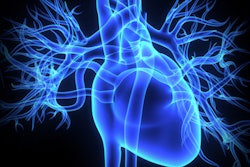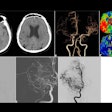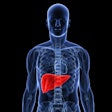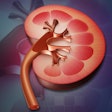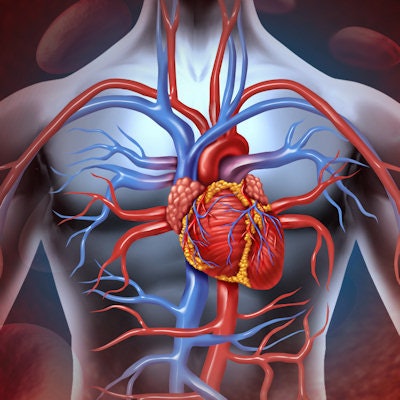
Coronary artery calcium (CAC) scores from CT scans could help inform treatment decisions for cancer patients at risk of heart disease -- but the scores are only being reported 50% of the time, according to a presentation at the upcoming American College of Cardiology (ACC) meeting in New Orleans.
Physicians often order CT scans for cancer patients before deciding on the best form of therapy for each case. Though the primary aim of requesting imaging exams is to help physicians evaluate the size and spread of tumors, CT scans often display additional information that could help inform the treatment process, noted first author Dr. Matthew Hooks and colleagues from the University of Minnesota.
Chest CT scans, for example, can reveal calcium plaque buildup in arteries near the heart, which is a critical factor to consider when managing cancer patients also at risk of heart disease.
"This is essentially free information because the patients are undergoing the CT scans anyway, and we'd like to see it reported more frequently," Hooks said in a statement from the ACC. "It would be particularly helpful to know if a patient has evidence of early coronary artery disease before starting cancer treatment that can potentially harm the heart."
To determine how frequently physicians were reporting calcium scores for cancer patients, the researchers obtained the information of 1,001 consecutive cancer patients who underwent CT exams before receiving chemotherapy. Among the treatment options were anthracycline and trastuzumab, which are drugs known to increase the risk of heart complications. Roughly 38% of the patients were men, and the mean age was 62 years.
The group found that physicians reported the presence of coronary artery calcification in only half of the 349 patients with positive CT CAC scores. What's more, physicians rarely acted on the already infrequently reported information, assigning aspirin for the first time for only five patients and statins for only three patients.
This likely suggests that at least some of the doctors missed the opportunity to use information from the CT scan to identify patients with high cardiovascular risk and take steps to intervene, the authors noted.
The study underscores CT scanning as an underutilized resource that could offer an important first step toward reducing the toll of heart disease in cancer patients, Hooks added.
"We hope to find out whether we can use CAC as a predictive tool to identify patients who may have poor cardiac outcomes and potentially guide the type of chemotherapy they get or guide whether preventative measures should be implemented prior to starting chemotherapy," he said.
Hooks and colleagues stated that more research is required to determine conclusively whether clinicians could use CT CAC scores to predict the long-term outcome of cancer patients. Their belief is that this knowledge would help improve treatment decisions.







